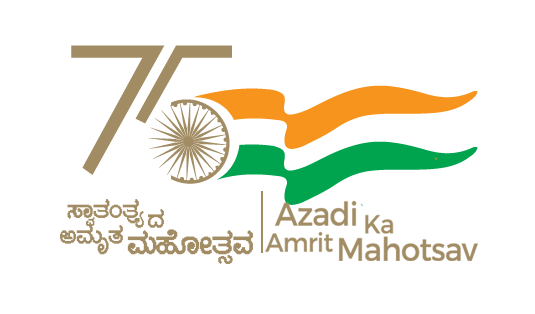Deputy Commissioner
The District is the Principal Administrative unit below the state level. It is a unit of administration not only for Revenue department but also for almost all the Departments of Government. In the words of the study team on district administration constituted by the Administrative Reforms Commission : ” The district is the most convenient geographical unit where the total apparatus of public administration can be concentrated, and where it comes into direct contact with the people. Most departments of the state Government out-side the secretariat, have external services which are located in the district. The sum total of the activities of these departments and some others, which may also be connected with the affairs of the Central Government, together constitute the administrative machinery in the district.”
The D.C., being the head of the district administration, is perhaps the only officer who exercises powers under the largest number of laws both state and central.
The functions of the district administration can be summarised as follows :
- Law and order and magisterial matters: The first group of functions relates to public safety and tranquility. Maintenance of Law and order is the joint responsibility of the Superintendent of Police, who head the Police force in the district, and the District Magistrate. The Deputy Commissioner of the District is also the District Magistrate. Though there is a separate department for the administration of jails, the district Magistrate exercises general supervision over the jails in his district.
- Land Revenue : The second group of functions relates to revenue administration. While the most important component of this group is land administration including maintenance of land records, it also includes the assessment and collection of land revenue and also collection of the other public dues which are collected as arrears of land revenue. The Deputy Commissioner is a designated Revenue officer in various laws governing the land to deal with disputes arising out of land records and management of public lands and properties. The other revenue officers, namely, the Assistant Commissioners, the Tahsildars and the Deputy Tahsildars also perform functions of dealing with land disputes under the overall supervision and control of the Deputy Commissioner
- Development Activities:
(i) Social Security measures like Old Age Pension, Widow Pension, Physically Handicapped Pension, Sandhya Suraksha, N.S.A.P, Adarsha Vivaha, Anthya Sanskara, rehabilitation of displaced persons under various projects are implemented by the Revenue Department headed by D.C. in the district.
(ii) D.C. is the chairperson of the District Disaster Management Authority and is responsible for preparation of district plan and shall coordinate in implementation of the plan of Disaster Management and shall take all necessary steps for the prevention of disaster and mitigation of its effect.
(iii) D.C. is the District Electoral Officer and ex-officio Returning Officer in case of Parliamentary
Election.
Other Functions include following:
-
- Elections and Electoral registration.
- Control, Regulation and Distribution of Food and Civil supplies and essential commodities.
- Excise and Prohibition matters.
- Matters relating to Stamps and Registration.
- Municipal administration matters.
- Protocol
- Natural calamities & relief measures.
- Rehabilitation of displaced persons under various projects.
- Matters relating to Urban land ceiling
- Matters relating to land acquisition.
- Religious and Charitable institutions & endowments.
- Land Reforms.
- Matters relating to forest.
- Regional Transport authority
- Census
- Public Grievances.
- Irrigation matters
- Organising and conducting of all national festivals at district level
Powers and Duties of Deputy Commissioner under various Acts and Rules:
- Karnataka Acquisition of land for Grant of house sites Act 1972.
- Karnataka Agricultural Produce Marketing Regulation Act 1966 and Rules
- Karnataka Rent Control Act 1961
- Karnataka Ancient and Historical Monuments and Orchaeological Sites and Remains Act 1961.
- Karnataka Command Areas Development Act 1980
- Karnataka Debt Relief Act 1980
- Karnataka Irrigation Act 1965
- Karnataka Excise Act 1965
- Karnataka Stamp Act 1957 and Rules 1958.
- Karnataka Health Cess Act 1962.
- Karnataka Home Guards Act 1962
- Karnataka Legal aid District and Taluk Committees Schemes 1983
- Karnataka SC & ST Prohibition of Transfer of Certain Lands ] Act 1978 and Rules 1979.
- Karnataka Village Officers Abolition Act 1961 and rules.
- Karnataka Preservation of Trees Act 1976.
- Karnataka Public Library Act 1965.
- Karnataka Forest Act and Rules.
- Karnataka Municipalities Act
- Karnataka Treasure Trove Act.
- Karnataka Land Revenue Act 1964
- Karnataka Land Reforms Act 1961.
- Guardians and Wards Act.
- Indian Registration Act.
- Indian Lunacy Act.
- Wild Life Protection Act
- Motor Vehicle Act.
- Karnataka Cattle Trespass Act.
- Karnataka Habitual Offenders Act.
- Karnataka Police Act.
- Karnataka Prevention of Destruction and Loss of Property Act.
- Karnataka Prisons Act.
- Karnataka Town and Country Planning Act.
- Karnataka Cinemas Regulation Act.
- Karnataka Forest Act
- Karnataka Rent Act.
- Karnataka Prohibition of Beggary Act.
- Karnataka Panchayath Raj Act.
- Indian Arms Act.
- Telegraph Act.
- Poisons Act.
- Official Secrets Act.
- Petroleum Rules
- Explosives Act.
- Press and Registration of Books Act
- Bonded labour Act
- People Representation Act.
The above is illustrative and not exhaustive.


